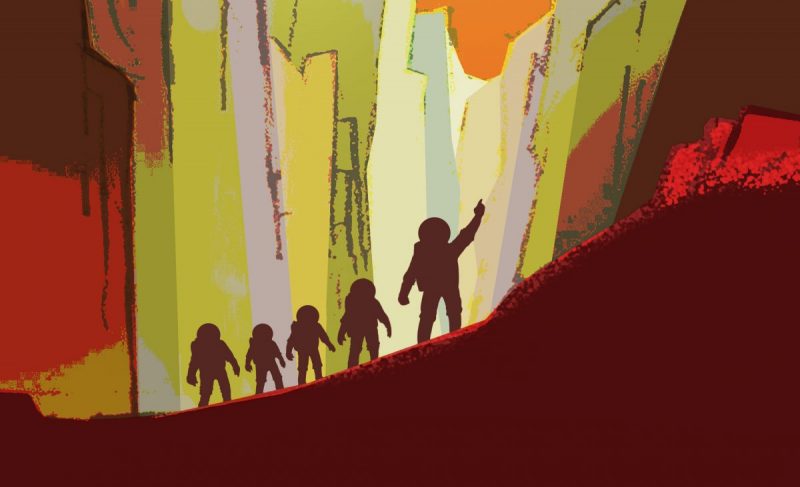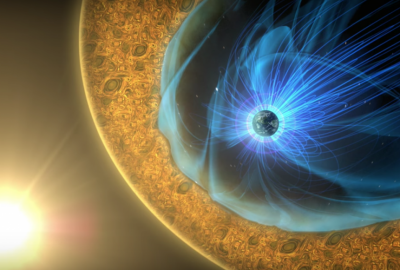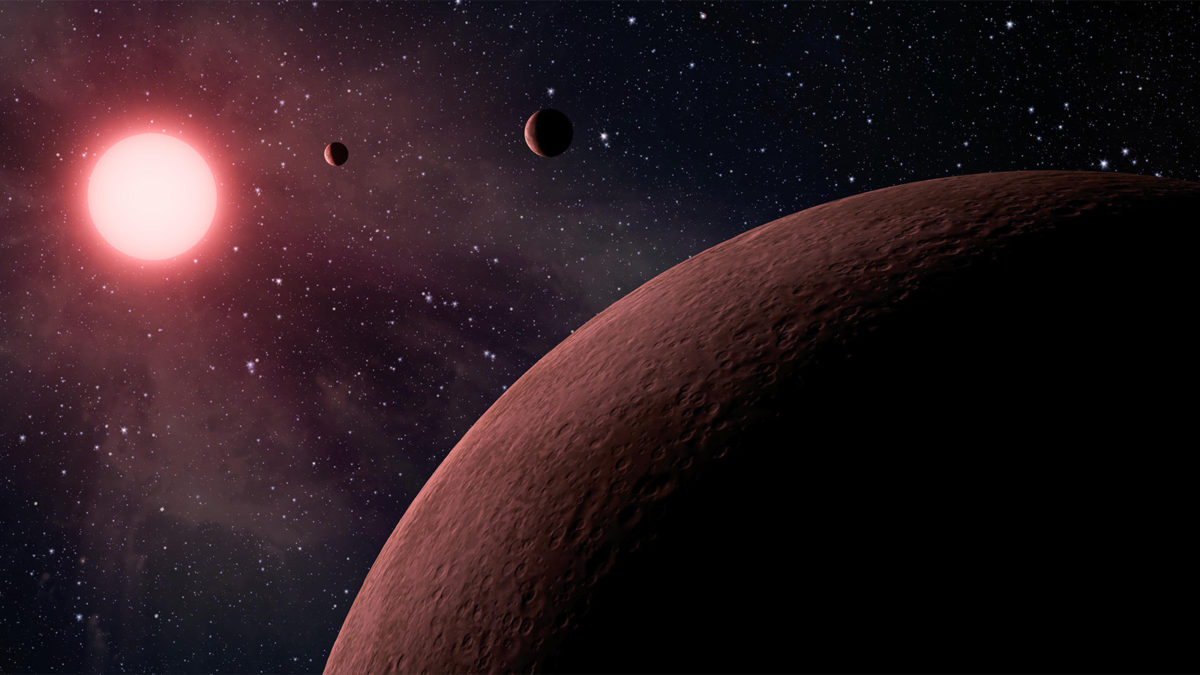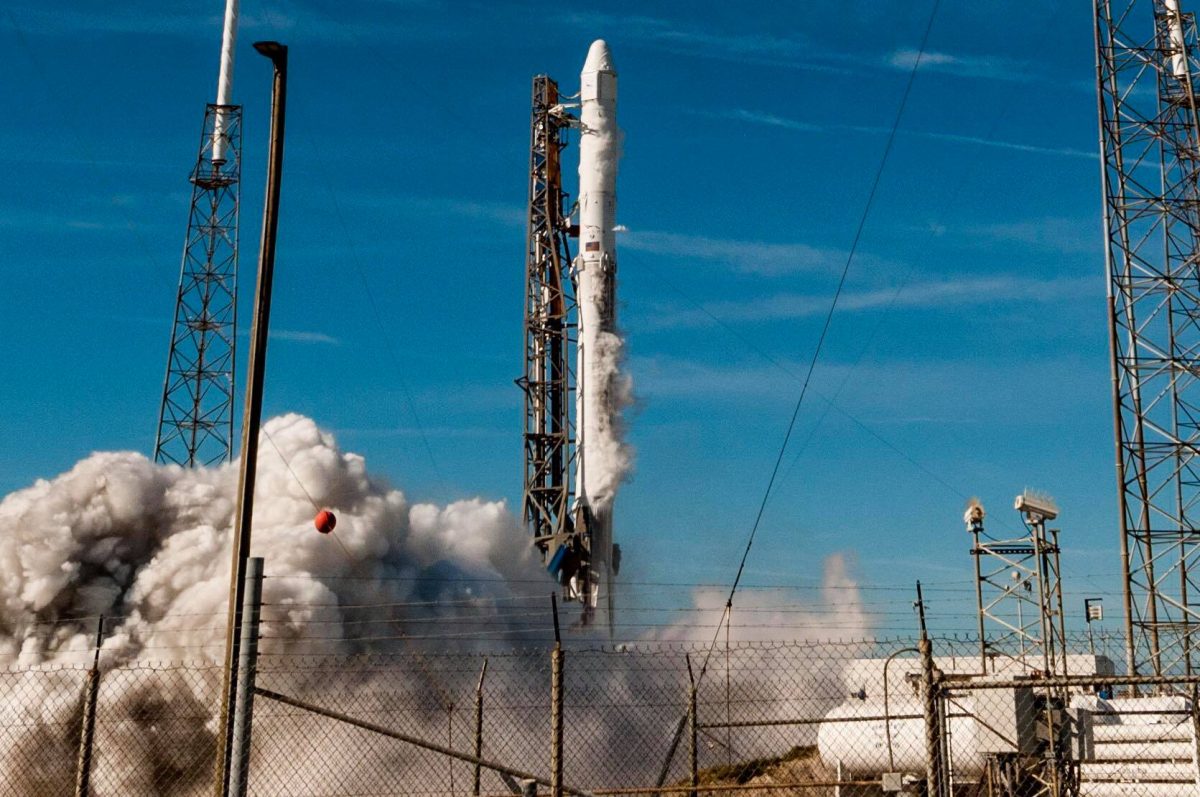What We Are
I migrated from Greece to Texas on Valentine’s day in 1999. My mom’s dad migrated to Greece from Turkey. Every human being who is reading this article is an immigrant. The truth is we have always been immigrants. Even before we were humans. Before we go there let’s look at what it really means to migrate.
Human migration is simple really. It is a group of people moving from one place country, city, planet to another with the intention to settle. And we have done it for billions of years.
Migration takes place on foot, inside tunnels, through rivers, oceans and now with the use of rockets to other planets. You can even say that we are about to embark on the biggest human migration in our known history. Planet migration. But will it really be the first time we do this planet hoping?
You guessed right, no it won’t be. As a matter of fact being an immigrant may be as important as building fire and hunting for food. I know right? Who would have thought?
Obviously if we thought about immigration as such a significant part of our survival we would have thousands of escorts waiting to help make migration easier at the borders. Imagine immigrants being given, water, blankets, food, clothes and anything they need to make their migration more comfortable as it is one of the most significant events of our human existence.
Let’s go back to 13,000 years ago. It was a land bridge that carried our ancestors into North and South America from Asia during the Pleistocene Ice Age. That bridge now is submerged to water. I can see it though, a big bridge of land made of ice. To look further back we visit with the very first human, Human Erectus who was discovered in Ethiopia 2.8 million years ago.
The first human, your ancestor, was not born in the US. Nope. It was Ethiopia. Imagine if Erectus never left Ethiopia––not a good picture. And since life on earth was first migrated by simple bacteria just 650 million years ago when earth was covered in ice, those days we migrated without legs.
You didn’t think we were going to go that far back did you?
Now the part that is even stranger is that algae was the first glimpse of complex life. Algae was cool. You can say if it wasn’t for algae none of us would be here. But we will travel back one last time and bring up this next concept. It may sound a little far-fetched.
It is possible that living organisms traveled from another planet.
Yes you read right. Life on Earth did not originate one Earth? This idea is called Panspermia.
We now know that some life forms, bacteria and fungus—can survive for extended periods in space. And if that is true then bacteria can migrate far and for a long time. A number of microbes survived in space for almost 2 years. There was an experiment on the ISS that proved this. They even went as far as to say that it could be longer.
In fact, microorganisms surviving in space is such a problem for NASA that the agency has a ‘Planetary Protection Officer’ devoted to making sure it doesn’t happen by accident. Yup. Who would have thought. Migration of microorganisms is no longer unruly.
Not only have we migrated as human species but we would not have existed if our algae ancestors and simple bacteria did not space travel and migrate from different stars in our solar system. In other words, being an immigrant is part of our DNA. Part of our bacteria.
Part of the cell. If it was up to us we would rename it. Immi-dna-grant.
 Who We Are
Who We Are
I often wonder what my children or grandchildren will say when asked to name the place of their origin, especially if they become space-faring like I hope they would.
“I’m from Earth” they would say to someone rolling their eyes at a Mars entry point while whispering “duh” under their breath. We know the first settlers to reach Mars will be our best engineers, scientists, and thinkers, but who comes next?
Immigrants, that’s who. Some looking to start a new life, some looking to start a business, and some looking to explore. Since the beginning of our civilization, movement has been a part of human life and part of our evolution. Across land and across sea. Space was always going to be next.
We move for fresh resources and we move for safety. There’s no indication that will change at an interplanetary level.
For myself, growing up in the melting pot of New York City, the question of where I come from is raised often––because everyone is from somewhere else. However, for some like myself, that answer can be complicated.
“I’m Indian,” I say. But it’s a bit more complex than that. While I’m the firstborn in the United States, my relatives who arrived in the years before my birth didn’t exactly come from there.
Nearly a century ago, my ancestors were taken from their land in southern India and made indentured servants to the British Empire, which spread across the world. This is really all my family knows––that we were a part of a global colonization effort. Our people were taken, mostly against their will, to many places including England itself, the Philippines, Canada, and a strip of countries along the northern tip of South America––where my parents ended up.
My mother and father came to the United States without papers or legal documents when they were teenagers but managed to stay off the radar of the Government for years. A year after a chance meeting on the NYC Subway, I was born and they were married. Both my parents would work full-time, buy houses, and settle into American life.
Today, my parents are citizens and I’m a journalist. My job has been very specific over the past three years: To track humanity’s progress on the colonization of a new world––Mars. And yes, the word colonization does leave a bad taste in my mouth.
The effort to land humans on another planet is something out of science fiction––where the ideas of the future take shape. Today, both NASA and Elon Musk-led SpaceX are working on achieving this big step in our evolution.
But one must ask the obvious question: will we build the same world we built here?
It all starts with the people who make the ultimate sacrifice to travel such a dangerous expanse of space. Who are they? Who will they become? Will they newly minted Martians or representatives from their nations?
What makes an immigrant and immigrant? For my family, it’s been the pursuit of a better life. Free from persecution and an absolute right to self-determination. The right to control your destiny. The United States has always been a country built by immigrants for immigrants. A place that was supposed to remain a safe refuge to those fleeing annihilation.
Today, that narrative seems to be diminishing. Unfortunately, at a time when humans are also looking toward the stars to make a new home.
Who will establish a precedent for legal immigration on Mars? Does anyone really have the right to do that?
Who will establish the planet as a safe and free society for which you can build a future for you and your family? More importantly, who will protect your rights when they are violated?
These are all questions we’ll be facing soon. Billionaires like Jeff Bezos and Elon Musk may have the prowess and the technology to bring humans up the ladder of exploration and expansion, but do they have the insight to build a society welcoming to all?
NASA will also be on the red planet soon, an agency of the U.S Government. Can we trust such an entity given the current climate with our future? The first few generations to live on Mars will be extremely vulnerable. They’ll be dependent on a larger body for water, food, air, and just about everything else until a fully functioning city is built.
Will those who control the resources or the means of production treat us all equally despite where they are from? Will they be forcibly moved and exploited as my family was by the British? They were likely told they were helping to build a new world also––and they were.
But at what cost? A person’s ancestry and heritage help to form their identity. It gives a family culture and tradition. When there’s little record of your lineage, generations that follow will struggle with who they are and what role they play in the world. I have witnessed it in my family.
The first generations of Mars colonist will only be from one place: Earth. Yes, they will try to recreate their traditional food dishes, celebrate the holidays that their parents did, and even sometimes sing a song that was passed down from their grandparents.
But ultimately, they will be humans. From Earth. They’ll need Wifi, tacos, and a good show to binge. And that isn’t such a bad thing.
Identity is everything. And maybe, just maybe, we’ll start to see ourselves as one species. Maybe it will be the need to survive or maybe it will be the need to belong, but our interplanetary descendants will have to leave behind the anger and hatred that has driven our civilization apart.
Especially if they want our new world to be nothing like this one.
Robin Seemangal and Christina Rasmussen









